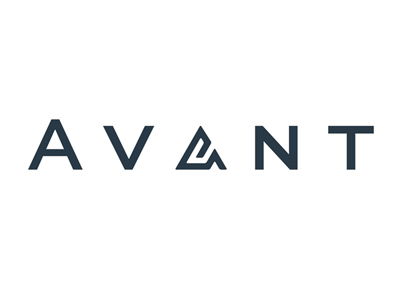Life can feel overwhelming when you’re saddled with loads of debt from different creditors. For example, maybe you carry multiple credit card balances on top of having a high-interest personal loan.
Or maybe you have a loan with an adjustable rate, and your payments are starting to rise each month, making your budget more and more uncomfortable.
In these situations, it may be wise to look at a debt consolidation loan. For some people, it’s a smart choice that gets your debts organized while potentially lowering your monthly payments. Ready to learn more? Let’s get started.
8 Best Debt Consolidation Loans
We’ve compiled a list of the best debt consolidation loans online, along with their basic eligibility requirements. Research each one carefully to see which one can help you with your debt consolidation.
Different lenders are ideal for different borrowers. Review these options and take a look at which ones best suit your needs as well as your credit profile. Once you have your own shortlist, you can get prequalified to compare loan options and find the best offer.
1. DebtConsolidation.com
Since 2012, DebtConsolidation.com has worked with borrowers to find the best debt consolidation service for their unique situation. If you are not sure where to start your debt repayment process, this may be it.
2. Upgrade
Upgrade appeals to all different types of borrowers. When assessing a new borrower, the lender considers various factors, including credit score, free cash flow, and debt-to-income ratio.
3. Upstart
Upstart’s target borrower is a younger person with less established credit. So maybe you don’t have a problem with bad credit, but you have a problem with no credit.
4. PersonalLoans.com
PersonalLoans.com directly helps individuals with low credit scores, so this is a great place to come if you’re still in the credit repair process.
5. Avant
Avant is designed for borrowers with average credit scores or better and offers several benefits for debt consolidation loans.
6. LendingClub
LendingClub is a peer-to-peer lender. That means, rather than having your debt consolidation loan funded directly by the lender, your loan application is posted for individual investors to fund.
7. Discover
Discover offers personal loans for borrowers with good to excellent credit. You can use a personal loan from Discover to consolidate your existing high-interest credit card debt.
8. OneMain
With an A+ rating from the Better Business Bureau, OneMain is a lender committed to customer satisfaction. While they offer debt consolidation loans up to $25,000, you can also get a loan for as little as $1,500.
Best Debt Settlement Companies of 2025
Taking out a debt consolidation loan is just one option when you want to lower your monthly debt payments. Another way to go is enrolling in a debt settlement program. Rather than paying off your lender in full, a debt settlement company can help negotiate an amount to repay so that the debt is considered settled.
Meanwhile, you agree to freeze your credit cards and deposit cash each month into an account that they will eventually use to pay off the settlement.
However, the downside is that to make this strategy work, you must stop making payments on your owed amounts. This will cause them to go into default. That means your credit score will take a nosedive. But, the goal is to pay less than what you owe.
If you have enough debt that it seems impossible for you to ever repay, debt settlement might be a better option than filing for bankruptcy. Below are Crediful’s top two picks for debt settlement companies. You can find the full list here.
Accredited Debt Relief
Accredited regularly works with major banks and lenders to help clients negotiate settlements. These include Bank of America, Wells Fargo, Chase, Capital One, Discover, and other financial institutions of all sizes, both large and small.
They’ll even work with retailers if you have store cards with major balances. While results vary from person to person, they offer examples of clients saving between 50% and 80% on their amounts owed.
National Debt Relief
National Debt Relief has an A+ rating with the Better Business Bureau and prides itself on trying to help those who truly have financial hardships in their lives.
One benefit of working with this company is that your funds are held in an FDIC-insured account opened in your name.
That means you have full control over the account and don’t run the risk of being scammed out of your money — you can rest assured that National is a reputable company.
Plus, the team is fully versed in consumer and financial law, so you can trust that your interests are being served to the fullest legal extent possible.
What is a debt consolidation loan?
Debt consolidation allows you to pull all of your smaller existing debts into one new debt that you pay each month. With a debt consolidation loan, you receive funds to consolidate all your high-interest loans and credit card balances into one payment.
You then make a single monthly payment to your lender, rather than making multiple payments each month. Keep in mind that this is different from debt settlement in that you’re not negotiating a new amount owed. Instead, you keep the same amount of debt but pay it off differently.
Depending on your personal situation, debt consolidation loans come with both pros and cons. Therefore, it’s important to weigh both sides carefully before deciding if a debt consolidation loan is right for you.
Let’s explore the details so that you can get closer to making a decision.

Advantages of Debt Consolidation Loans
There are several advantages and disadvantages associated with debt consolidation loans. We’ll go over all of them so you can weigh your options.
Lower Your Monthly Payments
The biggest benefit of a debt consolidation loan is the ability to lower your combined monthly payments. With credit card rates so high, you may be able to find a debt consolidation loan with a lower interest rate.
However, your actual interest rate depends on several factors, especially your credit score. It’s essential to compare interest rates and the total cost of the debt consolidation loan to your current payments to make sure you don’t end up paying more over time. One of the main goals is to save money.
Simplified Monthly Payments
When consolidating debt, you are essentially taking out a new loan to pay off your existing debts. So, instead of making multiple payments to multiple creditors each month, you will only have to make a single payment to your debt consolidation lender.
This can be more convenient and easier to manage, as you only have to remember to pay one bill each month, rather than several. Additionally, simplifying your monthly payments can help you to stay on top of your debts and avoid missing payments.
Improve Your Credit Score
Another advantage of taking out a debt consolidation loan is that it can actually help increase your credit score. While your amount of debt stays the same, installment loans are viewed more favorably than credit card debt.
So, if your debt is mainly from maxed-out credit cards, you could potentially see a rise in your credit score because your credit utilization has decreased on each card.
A debt consolidation loan streamlines your monthly payments. Rather than being inundated with multiple due dates each month, you simply have one to remember. This also contributes to building a healthy credit score because it lowers your chance of having a late payment.
Disadvantages of Debt Consolidation Loans
In some cases, personal loans for debt consolidation might not be a great idea. We discussed the total cost of the loan, which needs to be reviewed holistically, not just as a monthly payment. This is true for several reasons.
Origination Fees
First, most personal loan lenders charge some sort of fee when you take out a new loan. The most common is an origination fee, typically charged as a percentage of the total loan amount.
So if you have a loan amount of $10,000 and there is a 4% origination fee, you’ll only actually receive $9,600. Next, compare interest rates and loan terms.
Even if the monthly payments look good on paper, you may be paying a lot more over an extended payment period. You can use the APR to compare interest rates and fees, but you also need to consider how much you’ll spend on interest over the entire loan term.
Changing Your Spending Habits
Finally, it doesn’t necessarily resolve the root problem of your debt.
This isn’t something you need to worry about if your debt results from a one-time incident, such as an expensive medical procedure or temporary job loss. But, debt consolidation loans won’t help in the long run if you habitually spend more than you earn and are still incurring new debt.
If this sounds like you, try to figure out how to curb your spending to stop accruing more debt. You can even talk to a debt counselor to help create a sound management plan for your finances.
See also: Debt Consolidation Loans for Bad Credit
How to Apply for a Debt Consolidation Loan
Applying for a debt consolidation loan can help simplify your debt and improve your finances. With proper preparation and understanding, you can streamline the process and set yourself up for success.
Gathering Necessary Documents
Before applying for a debt consolidation loan, you need to gather all the necessary documents that lenders will require. This may include proof of income, such as pay stubs or tax returns, as well as proof of employment and identification.
You’ll also need to provide information about your debts, such as the balances, interest rates, and minimum monthly payments. It’s a good idea to have this information organized and ready to provide to potential lenders when you apply.
Shopping Around for the Best Loan Offer
Once you have all the necessary documents gathered, it’s time to shop around for the best loan offer. This may involve contacting multiple lenders, such as banks, credit unions, or online lenders, to compare rates and terms.
Be sure to consider the interest rate, fees, and repayment terms, as well as the lender’s reputation and customer service. It’s also a good idea to consider whether the loan will have a positive or negative impact on your credit score.
Applying for the Loan
Once you’ve found the best loan offer for your situation, it’s time to apply for the loan. This usually involves filling out an online application or visiting a lender in person to complete an application.
You’ll need to provide the lender with all the necessary documents and information about your debts and financial situation. If your application is approved, the lender will provide you with a loan agreement outlining the terms of the loan. Be sure to carefully review the agreement before signing it, as it will be a binding contract.
Tips for Success with a Debt Consolidation Loan
To make the most of your debt consolidation loan, it’s important to take steps that will help you stay on track. By managing your loan responsibly, you can work toward financial freedom and avoid future debt issues.
Stick to a Budget
One of the keys to success with a debt consolidation loan is sticking to a budget. This will help you to avoid overspending and ensure that you have enough money to make your loan payments each month.
To create a budget, start by tracking your income and expenses for a few months. Then, look for areas where you can cut back on unnecessary spending and redirect that money towards paying off your loan. It’s also a good idea to have an emergency fund in case of unexpected expenses.
Pay off the Loan as Quickly as Possible
Paying off your debt consolidation loan as quickly as possible can help to save you money on interest and get out of debt faster. Consider making additional payments towards your loan when you can, or refinancing your loan to a shorter repayment term if it makes financial sense.
Additionally, you should avoid missing payments or falling behind on your loan, as this can result in additional fees and damage to your credit score.
Avoiding Taking on New Debt
Another important tip for success with a debt consolidation loan is to avoid taking on new debt. This can be tempting, especially if you have a lower interest rate on your consolidation loan.
Just remember that every time you take on new debt, you are adding to the total amount you owe. Instead, focus on paying off your consolidation loan and building up your savings so that you can avoid relying on credit in the future.
Alternatives to Debt Consolidation Loans
While debt consolidation loans are a popular option for managing debt, they’re not the only solution available. Depending on your circumstances, there may be alternative options worth considering.
Balance Transfer Credit Cards
A balance transfer credit card is a type of credit card that allows you to transfer the balances from your other credit cards onto a single card with a lower interest rate. This can be a viable option if you have high-interest credit card debt and can qualify for a card with a low promotional interest rate.
Just be aware that balance transfer credit cards often have fees associated with the balance transfer, and the low interest rate may only be temporary.
Home Equity Loan
Home equity loans allow you to borrow against the equity in your home. If you have equity in your home and a good credit score, you may be able to qualify for a home equity loan. This would typically allow you to get a lower interest rate than your credit card debt.
However, using your home as collateral for a loan carries a high level of risk, as you could lose your home if you default on the loan.
Home Equity Line of Credit (HELOC)
A home equity line of credit (HELOC) is similar to a home equity loan, but instead of borrowing a lump sum of money, you are approved for a line of credit that you can draw on as needed. HELOCs also use your home as collateral, so it’s important to be mindful of the risks involved.
Debt Management Programs
Debt management programs are designed to help you pay off your debts through a repayment plan with your creditors. Under a debt management program, you make a single monthly payment to the program, and the program pays your creditors on your behalf.
A debt management plan can be helpful for those having trouble making minimum payments and seeking lower interest rates and fees. However, they may have fees and a negative impact on credit score.
Debt Settlement
Debt settlement is a process in which you negotiate with your creditors to pay off your debts for less than the full amount owed. Debt settlement can be a practical option for those unable to pay debts in full and struggling with minimum payments. However, it may negatively impact credit score and involve fees.
Bankruptcy
Bankruptcy is a legal process that allows you to forgive or restructure debts. However, it has a major impact on credit scores and can stay on credit reports for up to 10 years. It should be a last resort as it is complex and costly.
See also: Should I File Bankruptcy?
Final Thoughts
Debt consolidation loans can be a helpful tool for simplifying debt and reducing monthly payments. By consolidating multiple balances into one manageable loan, you can streamline your finances and focus on paying off debt. However, it’s important to weigh the pros and cons before committing, and ensure you’re choosing the right option for your financial situation.
Whether you decide on a consolidation loan or explore alternatives like balance transfers or debt settlement, make sure to develop a solid repayment plan to stay on track and avoid new debt in the future.













